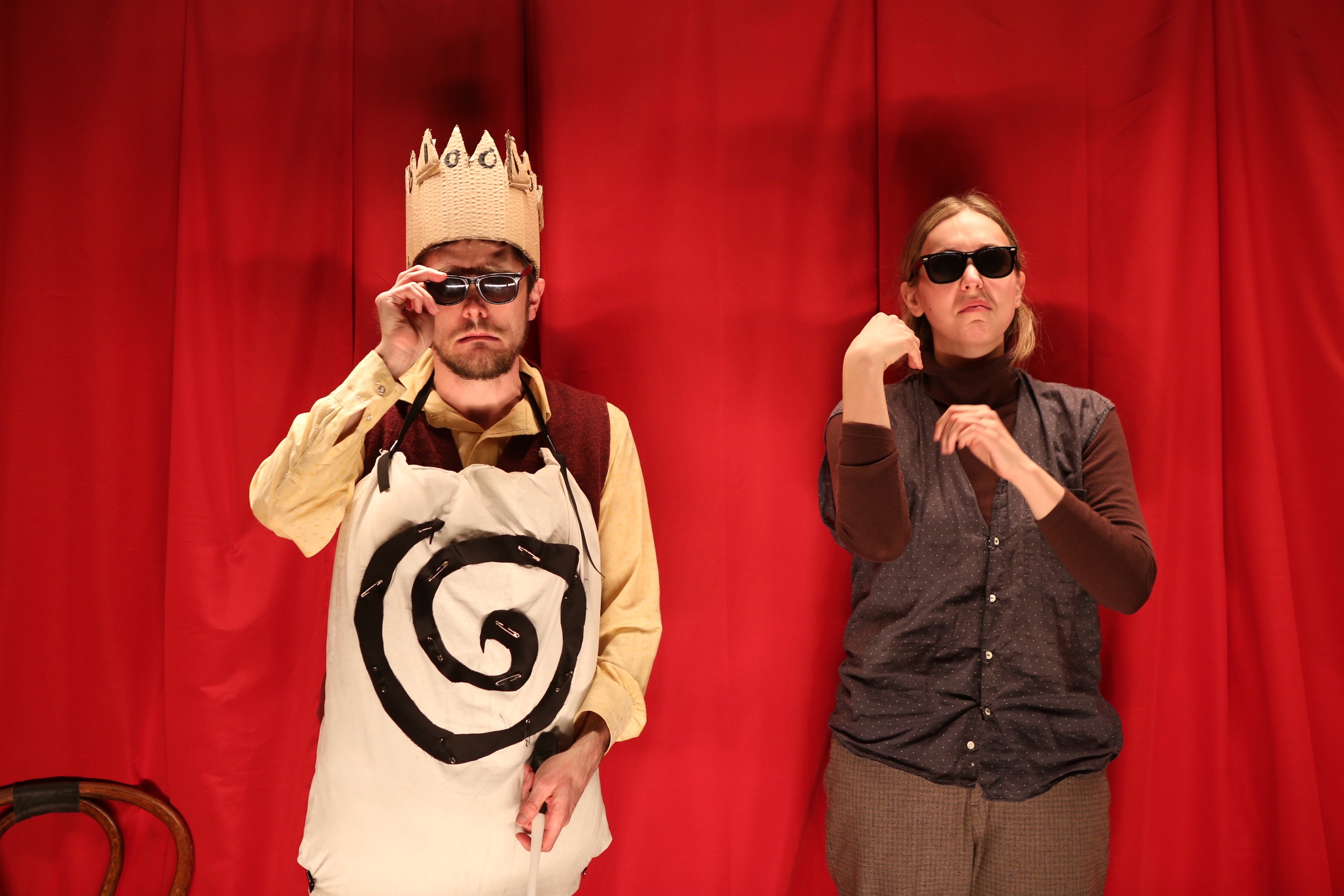Preview of The Conduct of Life, Yale Summer Cabaret
The second show of the Yale Summer Cabaret’s Verano season opens tonight. The Conduct of Life, written by María Irene Fornés, was first produced in 1985. Fornés, who died last year, was one of the foremost avant-garde U.S. playwrights of her time. Jecamiah M. Ybañez, a Co-Artistic Director of this year’s Summer Cabaret and a 2019 MFA of the Yale School of Drama, directs. For Ybañez, who admits being drawn to “gritty material,” one of the attractions of doing the play at this time comes from its poetic handling of political questions.
As Ybañez sees it, we, as a culture, are “more educated, knowledgeable, and aware” than ever before. We have so much information easily available, but “the question becomes: how do we behave? How do we move forward—do we act on what we know or ignore it? How do we respond to the inequalities in our society?” Fornés play, as the title suggests, is about how we conduct our lives—whether we “blatantly or subversively” take action.
Like Martin Zimmerman’s Seven Spots on the Sun, which was Ybañez’s thesis show at YSD last winter, The Conduct of Life takes place in a “nondescript Latin American country under a military dictator.” At the time the play was written, the events of the play could be in “almost any of a number of Latin American countries,” Ybañez said. Indeed, Fornés’ play, in focusing on the domestic life of a couple whose husband, a military officer, is attempting to rise in political power, recalls a couple in Seven Spots where the brutality of military service during a civil war impacts a soldier’s relation to his wife. Fornés’ play more directly confronts “the obsession with power” on the part of a military man in a corrupt system, Ybañez said. Conduct depicts acts of violence “in a specific context,” where scenes of “child abduction, sexual assault, and interrogation” show the impact of abusive power on “othered bodies.” Ybañez mentioned the audience advisory on the Summer Cab’s website: “This production contains depictions of sexual violence, disturbing and explicit images and audio, coarse language, and simulated gunshots.”
For Ybañez, the attractions of the play are twofold. He sees the play as “a thriller” where “information is withheld.” The audience has to react to the imperfect evidence Fornés provides within a context of political unrest and violence. The typical element of the thriller—that secrets will come to light—is complicated by Fornés’ method. Fornés’ earliest influence as a dramatist was a production of Beckett’s En attendant Godot she saw in Paris. At the time she was a painter who had studied with the abstract theorist and artist Hans Hoffmann. In Conduct, Fornés uses an avant-garde form of nineteen vignettes, some too short to be considered individual scenes, where the narrative connections are not always clear, so that viewers must infer the particular connotations of what they see.
Jecamiah M. Ybañez
The play has a cast of five, all of whom have done memorable work at the term-time Cabaret. Orlando (John Evans Reese) is a ruthless man married to Letitia (Juliana Aiden Martínez), who speaks with some social conscience. Orlando’s friend, Alejo, is played by Devin White and Letitia’s maid, Olimpia, by Nefesh Cordero Pino (the only cast member also seen in Bakkhai, the season opener). Amandla Jahava, who graduated from YSD in May and worked on several projects at the Cabaret last season, returns to play Nena, a child Orlando has kidnapped. Outside the house in which the action takes place, Ybañez said, the government is trying to obtain absolute power over its people.
In working with his cast, Ybañez has been concentrating on the rhythm and the tempo of the vignettes. Each has “a time signature,” he said, and it is necessary to “feel the shift” in a scene. Fornés eschews naturalistic dialogue, preferring to let characters speak in ways that suggest unspoken thoughts. Her theatrical palette includes Theater of the Absurd and the Brechtian effort to alienate audiences from naturalistic comforts for the sake of political effect. Her style and intentions are mercurial and make for challenging theater.
“There’s no neat tie-up,” Ybañez said of the play’s conclusion, but he stressed how the play suggests that even the powerless “have a certain agency,” and that even victims of unjust systems, Fornés indicates through Nena, must decide how “to live each day the best way possible.” The notion that even those who perpetrate criminal violence may be in pain is one that Fornés is able to bring to light through the tensions between her characters. In a time when we find polarized accusations of evil on each side of our political divides, Fornés’ play may have a resonance relevant to how we might conduct ourselves differently.
The Conduct of Life
By María Irene Fornés
Directed by Jecamiah M. Ybañez
Yale Summer Cabaret Verano
June 21-29, 2019
For tickets and information regarding showtimes and dining, go here.



